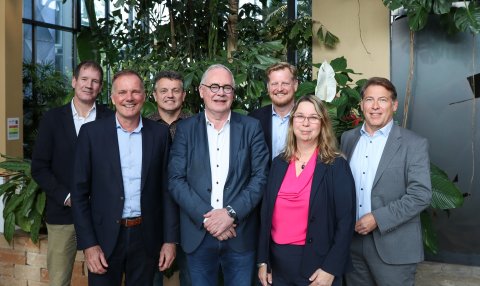
A recently published article from the Washington Post sparked some internal discussion at Planon. In her article “Google got it wrong. The open-office trend is destroying the workplace,” Lindsey Kaufman describes her bad experiences with moving to a new, open office type of environment.
To be honest, during my first read-through, I felt for her and my first inclination was to rethink the notion of flexible office concepts altogether. However, when thinking about all the improvements we have seen with flexible workspace so far, it’s worth exploring what went wrong for Lindsey Kaufman.
What is it that made an intelligent and energetic person so unhappy? I set out to read her article once more and tried to analyze what must have gone so wrong. Without pretending to have grasped this from just reading the article, there are some very interesting notions to be taken away from her story:
Quote: “Bosses love the ability to keep a closer eye…”
The flex concept seems to have been introduced to Lindsey Kaufman’s company in a very one-sided way; implemented as a technocratic measure (reducing the number of workplaces) only. An inherent value of flex working is that it provides greater autonomy for the workers themselves, allowing them to work wherever suits their needs best.
The other side of the coin is that this requires a different management style. Managing by presence does not work anymore; it should be based on output and transparency instead.
Quote: “I bid adieu to the 12 pairs of eyes I felt judging my 5:04 p.m. departure time”
Working in more flexible ways can also mean working hours are flexible. When someone leaves the corporate office space, this does not automatically mean that someone is done working for the day. Or for that day, maybe they are. If there is transparency regarding performance and accomplishments, there really is nothing to worry about, right? Lindsey Kaufman’s company really missed the mark here. If managed correctly, flexible working provides a real opportunity for establishing a healthy work-life balance.
Quote: “All day, there was constant shuffling, yelling, and laughing, along with loud music piped through a PA system”
Lindsey refers to a disturbance factor that seems to be inherent to shared workplace areas. This is a topic of an ongoing conversation between workplace designers and real progress is being made with regards to this aspect. However, my question to Lindsey would be: do the corporate spaces not provide different areas and settings for work? We see many new office setups that offer different space for different types of work: for concentrated work, for various types of meetings, and so on. When someone has the option to choose the type of workspace they need for the day or for the specific task at hand, or has the option to work elsewhere, such as at home, frustrations like these will easily subside.
It is all about workplace effectiveness
Lindsey Kaufman points out issues with productivity around new workplace concepts, and rightly so. Just a small decrease in productivity can completely destroy the financial business case for flexible working. However, for the most part this has nothing to do with the workplace design. In this example, an additional wall or two may have helped, but a re-evaluation of the way work itself is managed is a more important factor. New ways of working require new management styles.
It might be a good idea for the Real Estate, Facility Management and Human Resources teams in companies like Lindsey Kaufman’s to join the IFMA Workplace Evolutionaries community. You can expect to find a lot of like-minded people there, struggling with the same type of issues, looking for better ways to arrange and create a great workplace.



















